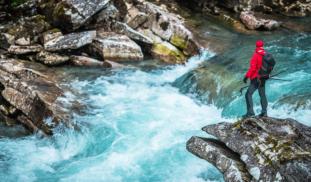238
0
1
References
- 1. Oke TR. (1982) The energetic basis of the urban heat island. Quarterly Journal of the Royal Meteorological Society. 108(455):1-24.
Please wait...
About This Project
We know very little about how climate change is affecting areas at a local level as there is not enough climate data being generated at a fine scale, which is critical to wild areas and the species that live there. This project will examine the use of low-cost mobile sensors in the hands of the vast numbers of recreational outdoor enthusiasts to accurately observe and quantify local climate conditions in natural areas that do not currently have adequate climate monitoring capacity.

Browse Other Projects on Experiment
Related Projects
Worms at Work: Scoping Natural Carbon Sequestration at Scale
For centuries, scientists noted earthworms' exploits as ecosystem engineers. Recent research shows the feasibility...
Whales as oceanographers: Developing multi-sensor tags for improved understanding and management of critical habitats
Limited oceanographic data prevent accurate prediction of whale foraging hotspots. To address this, we will...
Communities perception and monitoring of ocean acidification in the Douala-Edea national park (Cameroon)
This project will help us to evaluate the vulnerability of clam fishing to ocean acidification (OA) in the...


